Live A Live was one of the most unique RPGs ever made back in 1994 when it released for Super Famicom in Japan, and it continues to be equally unique in 2022 in review as an HD-2D remake on Nintendo Switch. It eschews complex game mechanics and massive quests in lieu of telling eight short, distinct stories that all provide wildly varied and fun experiences. For the remake, Square Enix, Team Asano, and Historia have dramatically upgraded the visuals and audio, added various quality-of-life improvements, and mostly left everything else the same. And it works. It works really well.
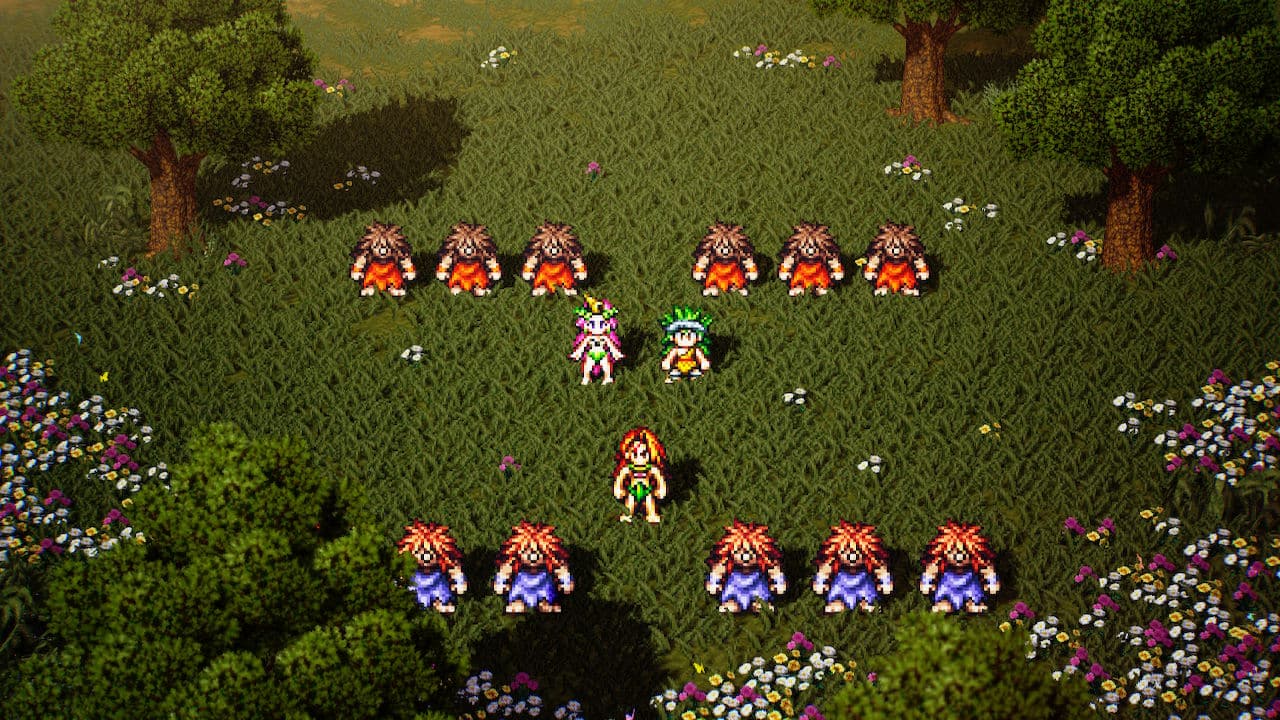
A Unique Combat System in a Game That Isn’t Too Invested in Combat
Everything about Live A Live looks and sounds similar to other RPGs, but when you get into the details, it’s actually all different. For instance, the game has items and gear to equip, but there is no currency or shops. Combat is turn-based and all characters act according to their speed stat, but combat takes place on a small grid where location affects which attacks can reach which areas. Each playable character learns many unique special abilities when leveling up, but there are no MP costs and no traditional “Attack” command; you just use whatever ability you want every round, though it might have a charge-up, which can be interrupted by certain enemy attacks.
On top of all of that, there are many different categories of ability, both physical and elemental, and everyone has different weaknesses and resistances. That means you (usually) won’t spam your strongest attack in every fight, because it might not work well on every enemy. There are also many abilities that can buff and debuff many different stats. All in all, there’s a surprising amount of depth to the battle system, though Live A Live isn’t necessarily interested in mining it for its full potential.
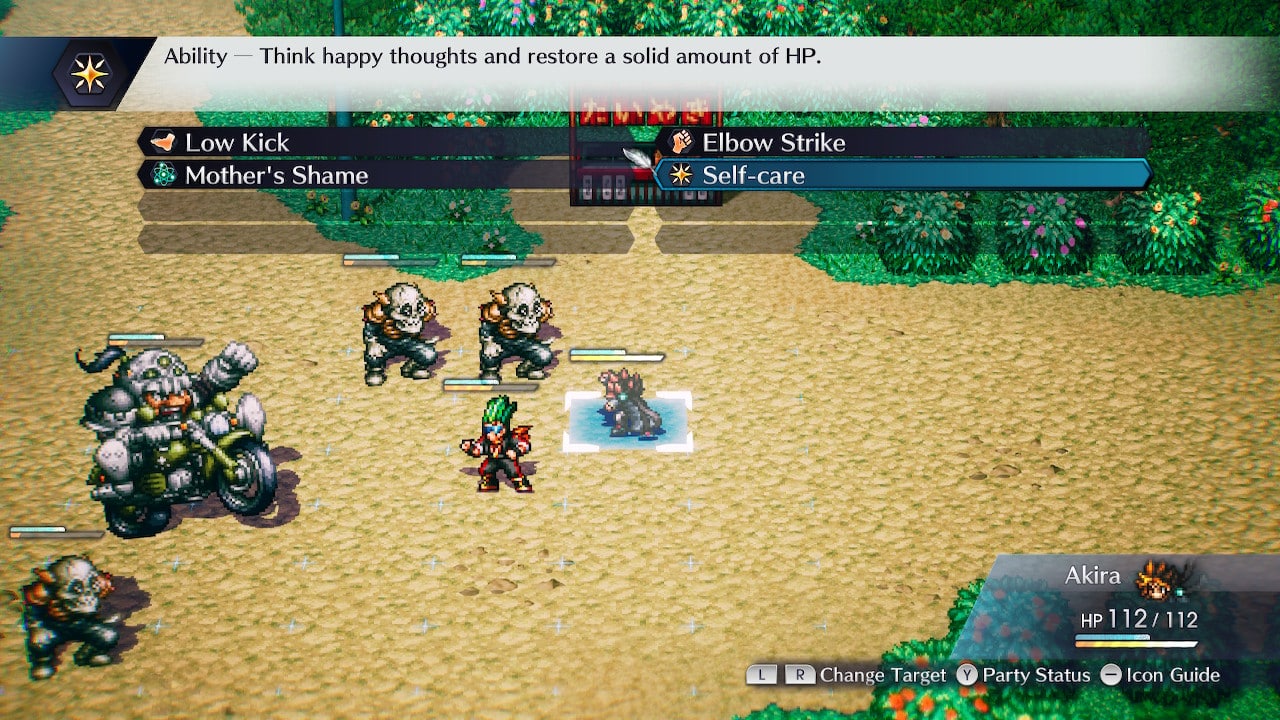
Of the eight stories in Live A Live, two of them can be finished in around an hour or less. Another story only has one mandatory battle in its entire playthrough. Only three of the stories have anything even vaguely resembling a traditional RPG setup, with different areas to traverse and random battles to run into. It’s only at the end of the game, when the protagonists meet up for a semi-open-world final dungeon for a few hours, that it feels like a combat-driven RPG. That’s not to say the game isn’t fun; it’s often extremely fun. It’s just to say that the battle system is merely one aspect of the game and not the major focus.
With that in mind, it’s impressive that the battle system is even as entertaining and functional as it is. The Live A Live remake has been rebalanced a bit over the original release, but battles still feel like you took all the toys out of your closet and tried to have a schizophrenic chess match with them. I mean that in a good way. Many aspects of the combat, especially in the endgame, feel excitingly improvisational. The game isn’t particularly difficult, as HP is restored between fights and you can run from most battles with a 100% success rate, but victory still feels sweet, especially in the odd instances where it demands you learn the battle system’s nuances.
The Live A Live remake offers several major quality-of-life improvements to further enhance the combat on Switch. Chiefly, the UI clearly tells you what everyone’s weaknesses and resistances are now, in addition to displaying all enemy HP, which removes a lot of guesswork. There are also new gauges that give you a vague idea of when characters will take their turn, which sounds really important but didn’t exist in the original release. Altogether, these changes really make the combat system more digestible than it was on Super Famicom.
The only tradeoff is that the Live A Live remake has more elaborate animations and special effects for attacks, which ostensibly is good, but watching them play out causes battles to drag on longer than necessary. A “2X” speed option would have been really appreciated. Additionally, the game now has an extra final boss at the end, but it doesn’t really add anything substantive to the experience. It’s just there.
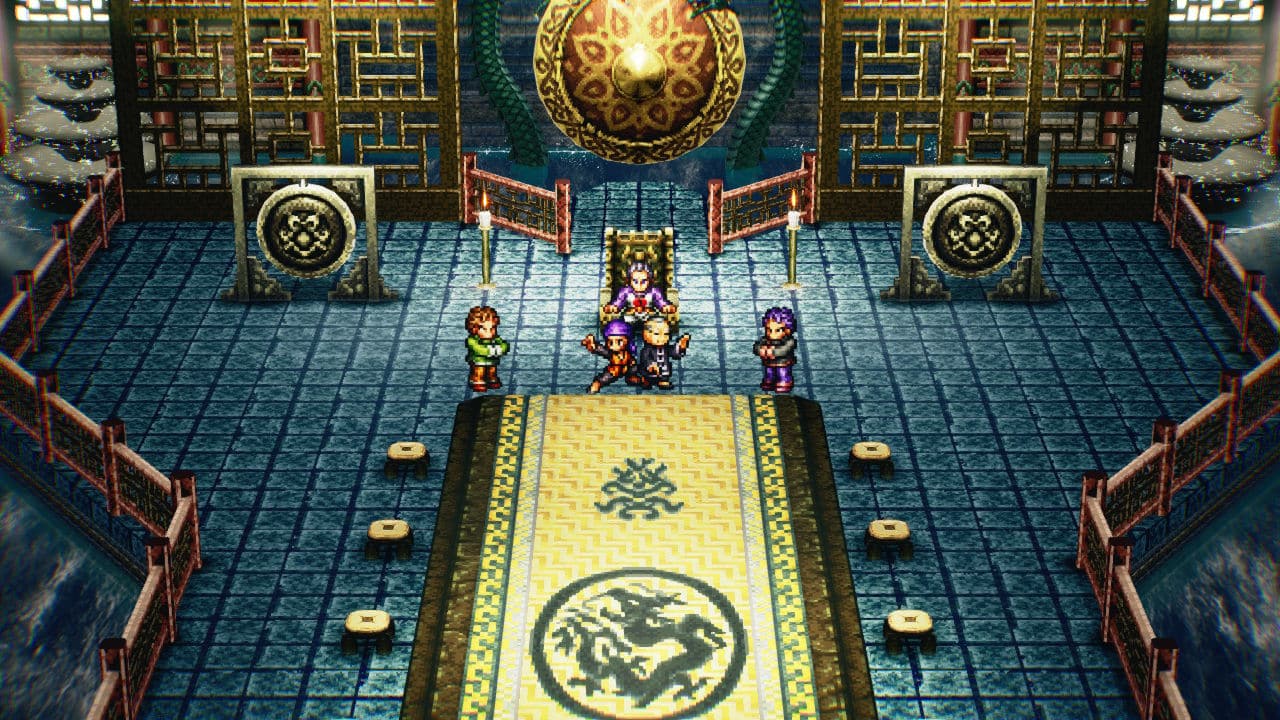
Live A Live Is All About the Experience
If Live A Live is not a combat-centric RPG, then one would presume it’s a narrative-heavy game. But that’s not necessarily true either. The game features eight stories with eight protagonists in eight different time periods, but they are all short and simple stories befitting their SNES origins. The stories and characters only even intersect in the most extremely superficial way at the end of the game. So, it’s more accurate to say that Live A Live is about providing thrilling overall experiences, somewhat like in creator Takashi Tokita’s other SNES classic, Final Fantasy IV.
Chiefly, it’s exciting how tonally and mechanically varied each story is. The Prehistory chapter is a romantic comedy about a caveman and his ape-man-ish buddy protecting a hunted cavewoman, and the entire story is told through grunts, iconography, and physicality because complex language has yet to evolve. It contains slapstick, fart jokes, and one gag so bawdy that I can’t discuss it in this review, and it’s terrific. On the flip side, the Distant Future chapter is basically a neurotic sci-fi visual novel heavily inspired by Alien. It’s not great, but the sheer fact that it exists, was dreamed up in 1994, and is juxtaposed with a caveman comedy is wonderful.
The rest of the stories all have unique charms. Twilight of Edo Japan casts you as a ninja who must infiltrate a giant maze of a castle, and you get bonuses if you complete it by either killing no one or killing everyone. Either one is a fun challenge that demands a lot of thought. Imperial China casts you as an aging martial arts master who must pass on his knowledge to a disciple, playing out like a kung fu movie. Present Day is a straight-up Street Fighter parody, consisting entirely of boss fights where you can learn the bosses’ own abilities during the fight.
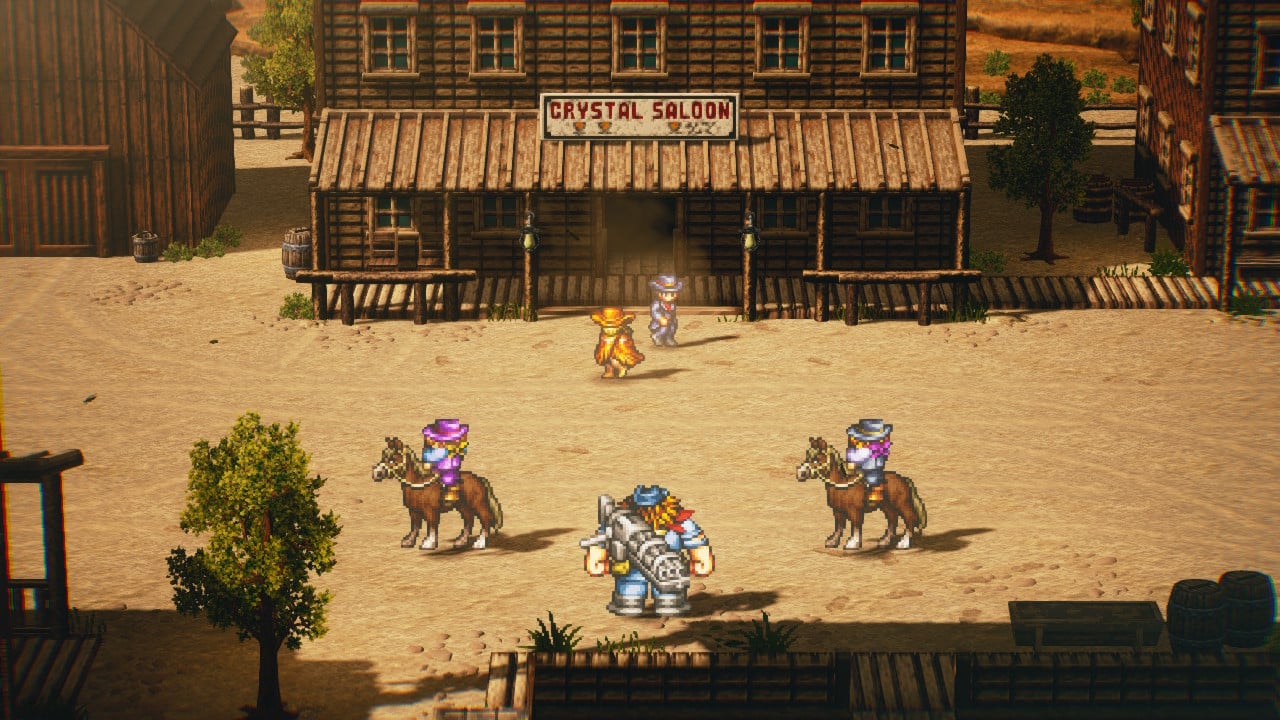
The variety goes on and on, and because the chapters are short, no gimmick ever outstays its welcome. (You can also hop in and out of different characters’ chapters, if you prefer.) It’s just one delightful scenario after another, like going to a Baskin-Robbins and sampling as many flavors as you can stomach. Ultimately, I was completely satisfied with my concise, 28ish-hour journey.
The Remake Improves Everything… Except One Major Thing
Live A Live looks genuinely beautiful in HD-2D — more so than Octopath Traveler or Triangle Strategy before it. Live A Live indulges in a richer, often brighter color palette that is able to evoke more moods. The game also employs some dramatic camera angles, both in cinematics and gameplay, to really sell special moments. It elevates the simple visuals of the original release to a mind-blowing extent. Combine that with an absolutely wonderful upgraded soundtrack, and the mechanical presentation of this remake exceeded my expectations.
The one area where Live A Live disappointed me was the English localization. For one thing, the voice acting is perpetually distracting instead of engrossing. The narrative is simple enough that voice acting doesn’t really add much in the first place, but a lot of the voice acting is mediocre on top of that. Also, the game uses actors with many different types of accents, which is fine, but the accents seem to show up largely at random. Hearing a Chinese character in China with an Australian accent was just bizarre.
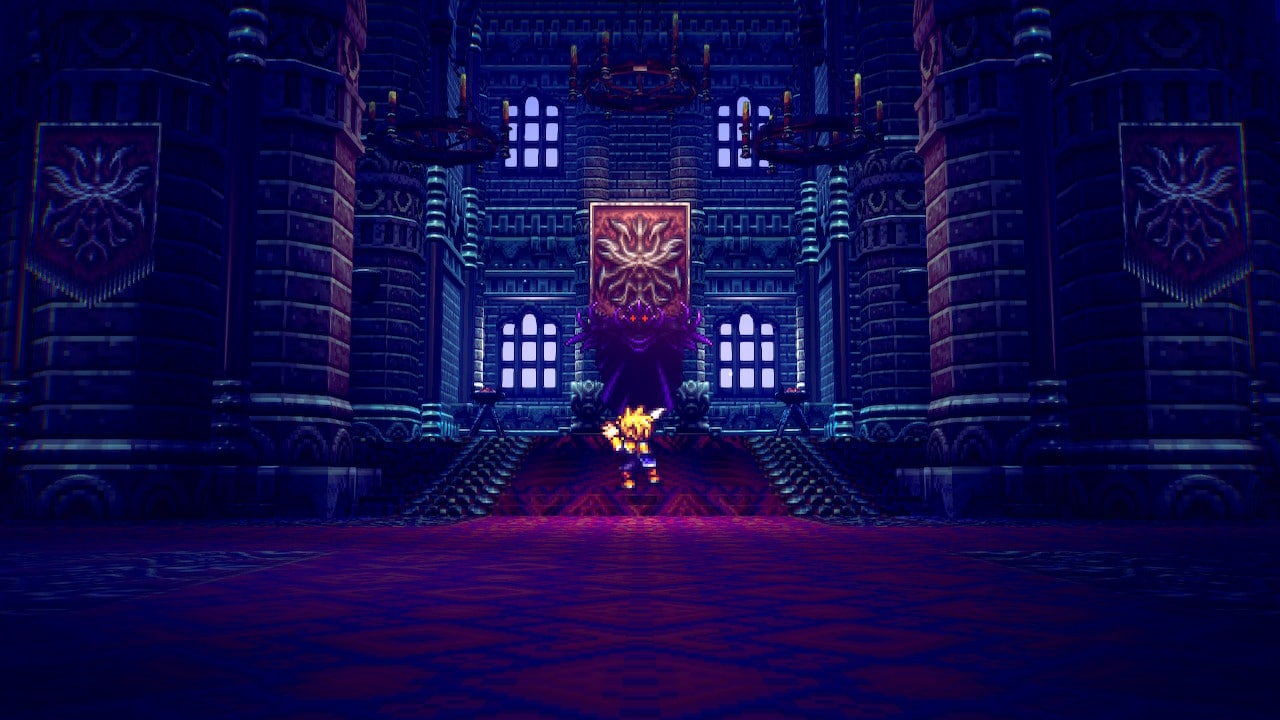
Far and away though, my biggest problem with the game is the localization of the Middle Ages chapter. All of the characters speak in extremely overwritten, flowery language, often using grammar like Yoda for no reason. The dialogue is awful to the point of embarrassing, and there were a few times where I had a hard time understanding what characters were even saying. It was frustrating to see such an important part of the game so badly mishandled.
The Review Verdict on Live A Live
If you demand really intricate combat systems and character progression, Live A Live won’t satisfy you. If you demand dozens of hours of storytelling across an epic saga, Live A Live won’t satisfy you. But if you want to play an RPG that takes you on a concise roller coaster ride of extremely varied and exciting experiences, then you absolutely need to play Live A Live on Nintendo Switch. The English localization has problems, but this is nonetheless an important piece of gaming history that has gone underappreciated till now. This HD-2D remaster is the chance for Live A Live to get the mainstream attention it deserves.
A Nintendo Switch review code for Live A Live was provided by the publisher.

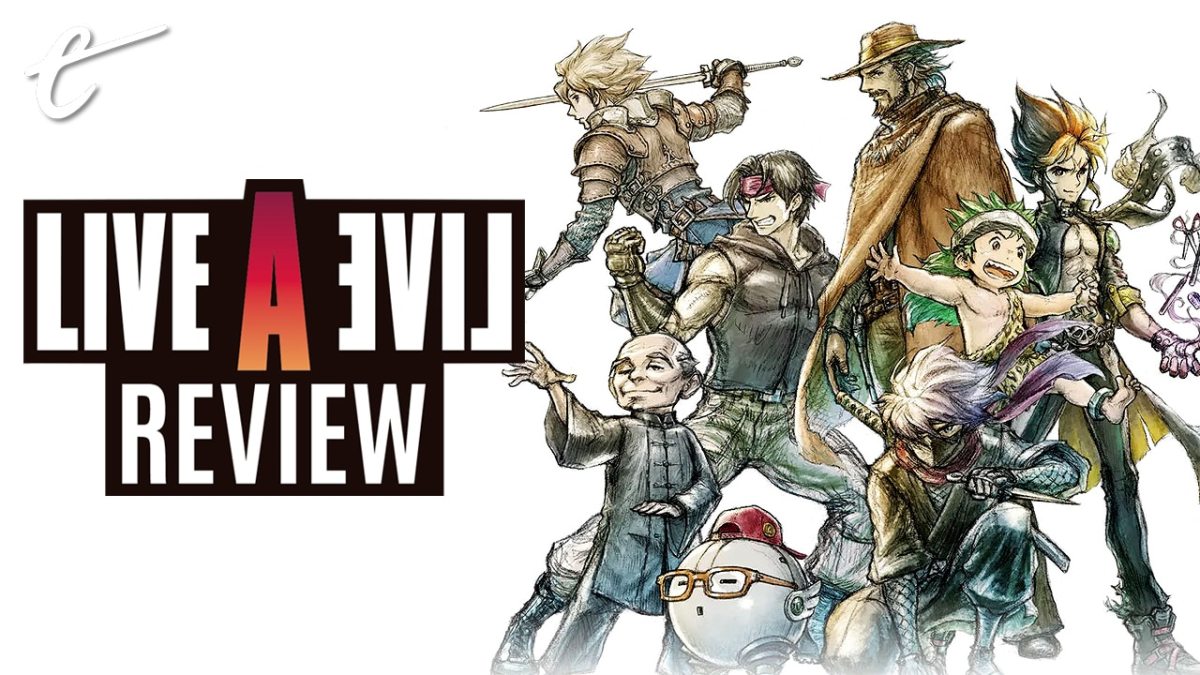




Published: Jul 27, 2022 11:00 am